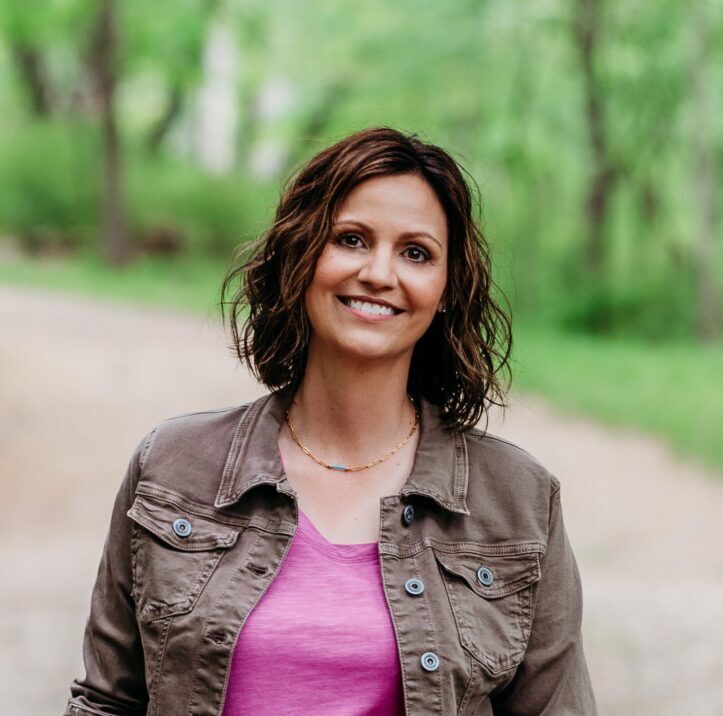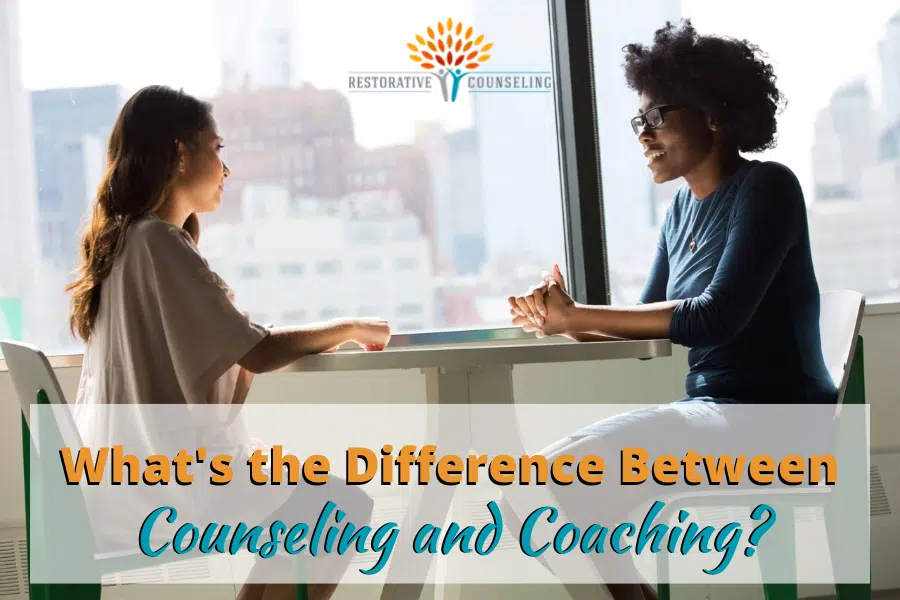Written By Stephanie Grunewald, PhD
When you are looking for help, the process of figuring out who to see can feel overwhelming!
Previously, we explored what makes the many different types of licensed mental health workers– counselors, psychologists, psychiatrists, and social workers– different. Today, we explore another nuance – coaching. This term alone is very broad and can include career coaching, executive coaching, life coaching, health and wellness coaching, and so much more. For the sake of protecting our sanity, we will lump all the different specialties into one lump sum – coaching.
Now that we have that out of the way, let’s get into the nitty gritty – what is the difference between counseling and coaching?
Whereas counseling and therapy aim to help ease mental health difficulties you may be struggling with like anxiety, depression, trauma, etc., coaching focuses on how to improve your life.
Let’s use a scale to help clarify the difference…
- a -5 represents having some level of psychological difficulties,
- a 0 indicates being okay, and
- a +5 indicates that you are not just surviving, but thriving.
Using this scale, a mental health professional aims to move you from -5 to 0, while a coach aims to move you from 0 to +5.
Depending on the type of coach you are working with, they may help you make changes related to your life, career, health, or some combination of each. While you may already be functioning very well, the focus is on how to be more successful in specific parts of your life.
Ready for change?
How does the approach used in counseling differ from coaching?
The approaches used by a mental health professional or coach can vary widely based on the professional. However, coaching generally uses solution-focused and strength-based approaches. This means that a coach is focused on helping you in the present to find solutions that will help you become even more successful in your future.
Mental health professionals can use techniques like CBT, DBT, EMDR and many more. The approach used is dependent on the training and preference of whomever you are working with.
Are there any differences in training between mental health professionals and coaches?
Again, this can vary widely, but mental health professionals generally are required to complete an advanced degree (beyond a bachelor’s degree). They also have strict licensing standards, which vary between each specific profession:
- Psychiatrists – https://www.abpsus.org/specializations/psychiatry/
- Psychologists – https://www.asppb.net/page/BdContactNewPG
- Social Workers – https://www.aswb.org/
- Counselors – https://www.nbcc.org/
Conversely, as of 2022, coaching remains a largely unregulated field, which means there are no education requirements to practice. However, with growing popularity and emphasis on excellence, coaching has started to formulate regulatory bodies that set international, national, and focus-specific regulation.
Are there any restrictions on where I can see someone for counseling or coaching?
Both mental health professionals and coaches may offer services in-person or virtually. However, mental health professionals can generally only practice in states where they hold a license. For psychologists, there is an inter-state agency that allows services to be rendered across state lines. Here at Restorative Counseling, this allows Stephanie Grunewald, PhD to serve clients all over the United States.
How do you decide what is the best option for you?
This is a complicated question with many variables to consider. Specifically, think about what you wish to focus on during your sessions. Do you feel that you are dealing with mental health difficulties that are impacting your daily functioning (counseling)? Or, do you feel well overall but wish that you could perform at a more optimal level each day (coaching)?
If you meet with a mental health professional or coach, they will inform you if they feel other services are needed in place of, or in addition to, the services they offer.
A final consideration is that of insurance. Counseling is generally covered by insurance as long as your provider has opted to accept it. In order to use insurance though, a mental health diagnosis is required.
Our counselors are here and ready to help!
At Restorative Counseling, our clinicians have a wide range of specialties and training to cater to your unique needs. We partner with you to overcome the difficulties preventing you from functioning at your best. Schedule an appointment to get started today!

Hello! I’m Stephanie.
I help adults identify strengths and learn strategies to manage stress, deal with life transitions, and overcome anxiety. Read more about me.
Follow Restorative Counseling
Sign up for our newsletter

